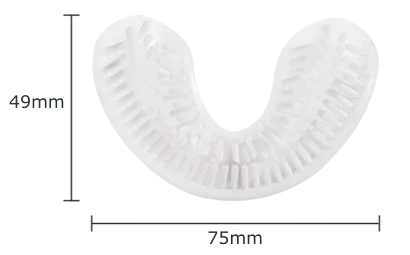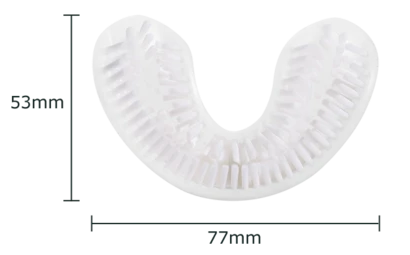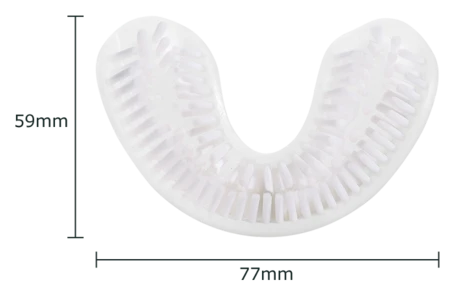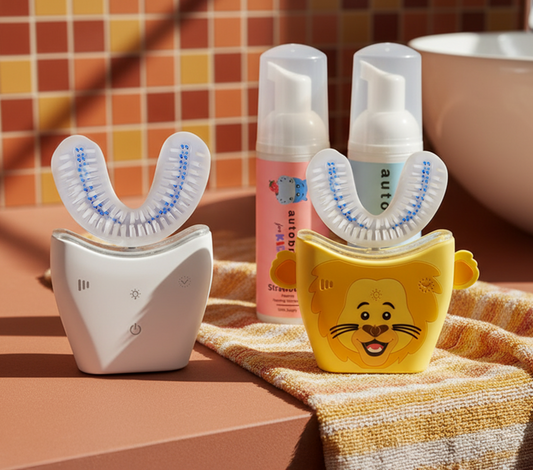
ADA Seal of Acceptance: Why It Matters And Why It’s Not Called Seal of Approval
We hear this question a lot:
“Why does it say “ADA Accepted” instead of “ADA Approved”?
Good question. Most of us are familiar with the phrase “FDA Approved,” so seeing something slightly different can feel confusing. But there’s a clear reason for this: the ADA and FDA have distinct roles and the language they use reflects those differences.
The ADA Doesn’t “Approve” Products (Here’s Why)
The American Dental Association (ADA) isn’t a government agency. It’s a professional dental organization dedicated to promoting oral health.
Unlike the FDA, which legally regulates medical products, the ADA evaluates products voluntarily. Instead of “approving” products, the ADA grants its “Seal of Acceptance” to those that meet rigorous scientific standards for safety and effectiveness.
When you see “ADA Accepted,” it means that product has successfully passed independent scientific reviews. It has been thoroughly tested for safety, effectiveness, and consistency, ensuring it performs exactly as claimed.
Learn more about our clinical studies >>
“Accepted” Means Safe, Effective, and Proven
Earning the ADA Seal of Acceptance isn’t simple. Products must undergo stringent evaluation by dental experts across multiple specialties. These experts carefully verify each product to ensure it’s:
- Safe for everyday use
- Clinically proven to deliver results
- Consistently reliable and of high quality
Put plainly, when a product earns the ADA Seal, you can trust it will perform as advertised, backed by real science.
The ADA vs. the FDA: Why the Terminology Differs
Understanding why the ADA uses “Accepted” instead of “Approved” comes down to their roles:
FDA (Food and Drug Administration):
A government agency that legally regulates drugs and medical devices. Their “approval” is mandatory for certain products.
ADA (American Dental Association):
A professional organization offering a voluntary Seal of Acceptance to dental products that pass rigorous scientific evaluations. Brands like Autobrush voluntarily choose to submit their products to earn this distinction.
Because of these distinct roles, the ADA deliberately uses the term “Accepted” to clearly communicate its voluntary, scientifically-backed endorsement.
Not Just a Logo; A Promise Backed by Science.
The ADA Seal isn’t handed out casually. At Autobrush, we didn’t simply request it, we earned it through intensive clinical trials conducted at ADA-accredited research facilities. Our products underwent thorough independent testing and demonstrated proven results in:
- Reducing plaque
- Improving gum health
Every bit of data we provided to the ADA came directly from independent labs that strictly follow ADA testing requirements.
The Seal Is Earned (and Must Be Maintained)
Once earned, the ADA Seal of Acceptance isn’t permanent. Products holding this seal must continually meet the highest standards. Typically, the Seal is valid for up to five years, but any changes in formulation, materials, or performance require additional testing and re-evaluation.
Simply put, brands cannot just claim the ADA Seal, they must qualify, earn it, and continually prove they deserve it.
ADA Acceptance FAQs
Can you buy the ADA Seal?
Nope! The ADA Seal of Acceptance cannot be bought. It’s earned through rigorous testing. Products must meet strict clinical and scientific criteria to ensure safety and effectiveness. Only those that pass with flying colors receive the Seal.
Which Autobrush products are ADA-accepted?
Our Sonic Pro brushes and brush heads are ADA-Accepted! This means it’s been independently verified to effectively remove plaque and improve gum health when used as directed.
What type of toothbrush were you tested against?
The ADA-Accepted Autobrush was tested against two types of brushes:
Autobrush was proven to clean:
- Up to 5.1x better than a manual toothbrush
- Up to 3.1x better than a leading electric toothbrush












